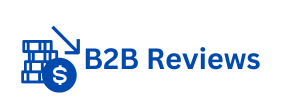Choosing the right CRM is a game-changer for any business. It can completely transform the way you manage sales, leads, and customer relationships.
But it’s also easy to choose the wrong one. When you do, you don’t just waste time and money. It can slow down team productivity and lead to missed opportunities.
Having worked with thousands of small and medium-sized businesses, I’ve seen firsthand how a CRM can speed up or slow down their process. Over the past 10 years, Choosing a CRM I’ve helped teams get CRM right and avoid the many pitfalls along the way.
In this guide, I’ll show you how to choose a CRM that fits your business and sales process like a glove. We’ll cover it all: what to prioritize, how to engage your team, and where CRM systems often fail.
A brief summary of what we will cover
Why choosing the right CRM is essential
El proceso de selección de CRM
Main features of a CRM
Lista de comprobación para la selección de CRM
Elegir el mejor CRM para su empresa
Let’s dive in.
Why choosing the right CRM is essential
Let’s cut to the chase: Your CRM is gambling data china more than Choosing a CRM just software and more than just a customer database . It’s the backbone of your sales operation.
If you do it right, it will have many benefits
It will help you stay on top of follow-ups, automate repetitive tasks, and keep your sales pipeline moving. If you do it wrong, you risk losing track of leads, missing out on key interactions, and creating more work for your team instead of less.
I’ve seen teams spend months trying to usb directory get a CRM up and running, only to abandon it and go back to messy spreadsheets. The root of the problem? They either didn’t choose a CRM that fit their needs or they underestimated the importance of user adoption.
A good CRM does more than just manage contacts. It structures the sales process, tracks all interactions, and provides insights into the status of deals at any given time. It makes selling easier, not harder.
Avoiding common mistakes when selecting CRM
One of the biggest mistakes I see is companies choosing a CRM with too many features they don’t need. It looks impressive during the demo, but in practice, all those extra features just make the system more complex.
What happens then? The sales team stops tone of voice: how to develop it using it. They find it too cumbersome, and without regular updates, the CRM becomes useless.
That’s why I always recommend keeping things simple. Focus on the basics first: lead management, engagement tracking, and follow-up automation.
Salesflare , for example, is designed with sencillez and automation in mind. We couldn’t find a CRM that we could continue using, so we decided to build a smarter one. Salesflare integrates seamlessly with the tools your sales team already uses, like email, calendar, and LinkedIn . This makes it second nature to them, resulting in higher adoption rates.







